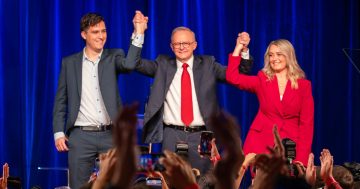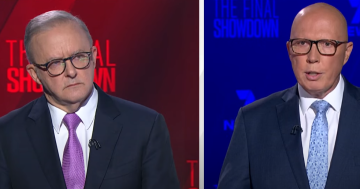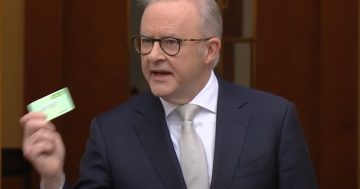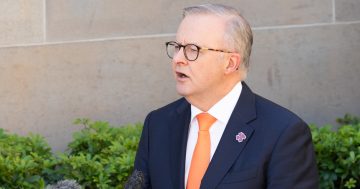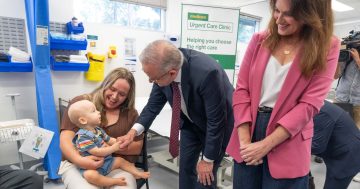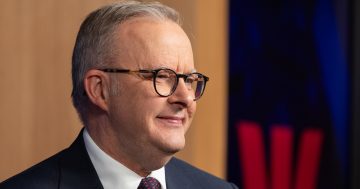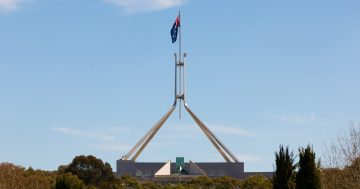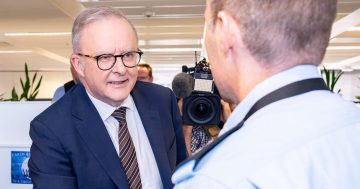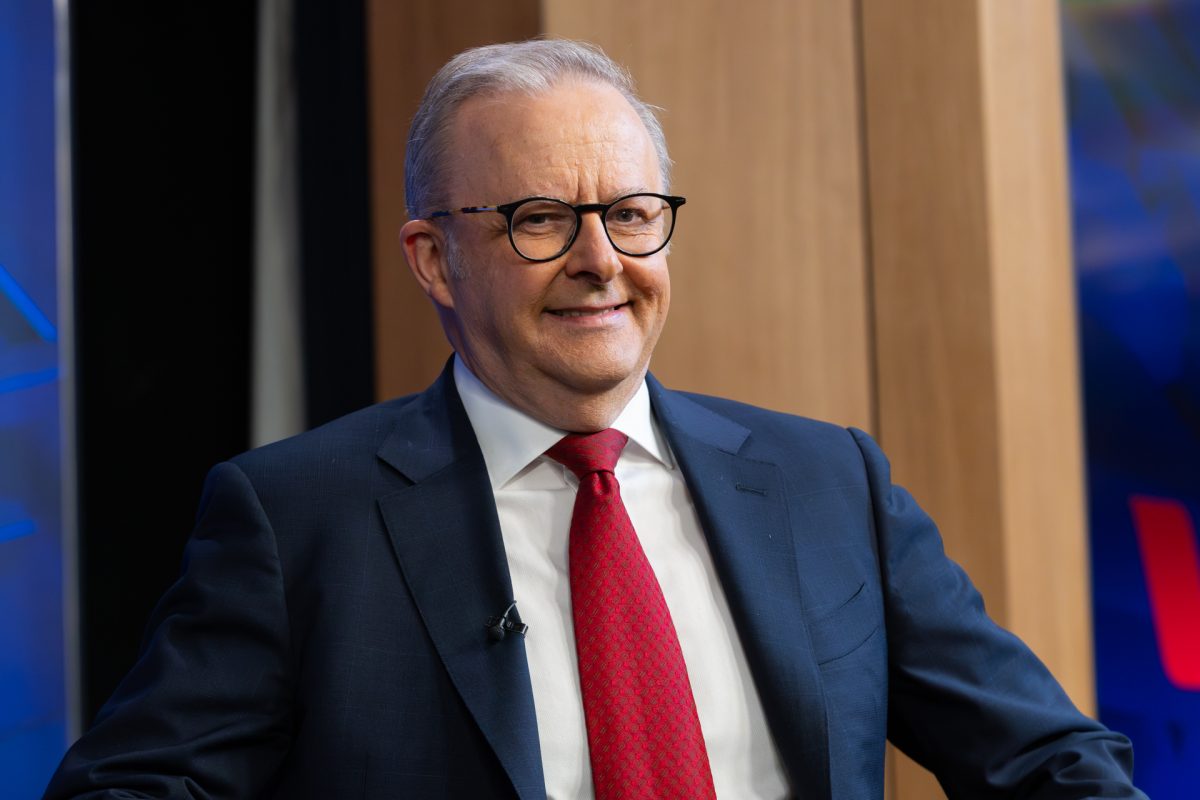
Prime Minister Anthony Albanese thinks progressive patriotism was embraced by Labor and the nation at the federal election. Photo: Thomas Lucraft.
Anthony Albanese isn’t the first person to push the line “progressive patriotism”, but it’s odds-on he is the first Australian Prime Minister to be doing it.
Almost two decades ago, the United Kingdom’s then Labour PM Gordon Brown was talking up the merits of Britons reclaiming patriotism and not leaving it to the rabid right.
Around the same time, musician and activist Billy Bragg published a memoir of sorts, which was also quite the political polemic, titled The Progressive Patriot: A Search for Belonging.
This book was a passionate response to the events of 7 July 2005, when suicide bombers set off a series of four explosions in downtown London, killing 52 innocent people and injuring many more.
Bragg said, when it came to patriotism, he felt like fascists had hijacked it on one side and religious fanatics on the other.
A longtime outspoken campaigner for tolerance and diversity, Bragg used his book to pose the question: “How does a rehabilitation of patriotism help the progressive cause?”
The sentiment was that patriotism doesn’t have to mean conservative nationalism that touts the idea that one’s country is always superior to any other, no matter what (hello, America).
Mr Albanese, still floating on air after his massively convincing win over the Coalition at 3 May’s federal election, has this week given some credit to the concept of progressive patriotism for the political win.
But he hasn’t gone so far as to claim Peter Dutton’s embrace of Trumpism and over-the-top national pride as the reason for Labor’s thumping victory.
The PM just reckons Labor showed its patriotism in a different, more reasonable way.
“We had progressive patriotism,” the PM said while a guest on a Nine News political podcast.
“We spoke about doing things the Australian way, not looking towards any other method or ideology from overseas.
“At a time where there’s conflict in the world, where people are often divided on the basis of race or religion, here in Australia, we can be a microcosm for the world.
“That says that we’re enriched by our diversity, that we have respect for people of different faith, that we try to bring people together, that we don’t bring turmoil overseas and play out that conflict here, either, and that’s really important.
“This is a project, if you like, that’s not just about strengthening Australia, but also being a symbol for the globe in how humanity can move forward.”
Some immediately interpreted the comments as a new two-word slogan or an empowered catchcry for Labor following its election win.
But what does the phrase actually mean?
According to a range of credible literary sources (including the ‘always’ reliable Wikipedia), progressive patriotism combines a love for one’s country with a commitment to its continuous improvement and reform.
Importantly, it is “not a blind acceptance of the status quo”, but rather a belief in the potential for the nation to be better.
This belief can be embraced while still valuing a nation’s traditions, history and culture.
“At its core, progressive patriotism is rooted in a genuine affection and attachment to one’s homeland, its people, and its ideals,” Wiki’s online dictionary states.
“Unlike jingoistic patriotism, progressive patriotism doesn’t shy away from acknowledging flaws and shortcomings.
“Instead, it actively seeks to address these issues and push for positive change within the nation.
“Progressive patriots often advocate for policies that promote social justice, economic equality, and human rights, believing that these are essential for a truly prosperous and just society.
“They are willing to critically examine their country’s history and policies, and are open to ideas that can help make it a better place for all citizens.
“Progressive patriotism often extends to supporting international cooperation and global efforts to address shared challenges, recognising that nations are interdependent.”
That seems to be exactly what the Prime Minister was talking about.
And we all thought the election was all about the economy and cost of living.
Original Article published by Chris Johnson on Region Canberra.


